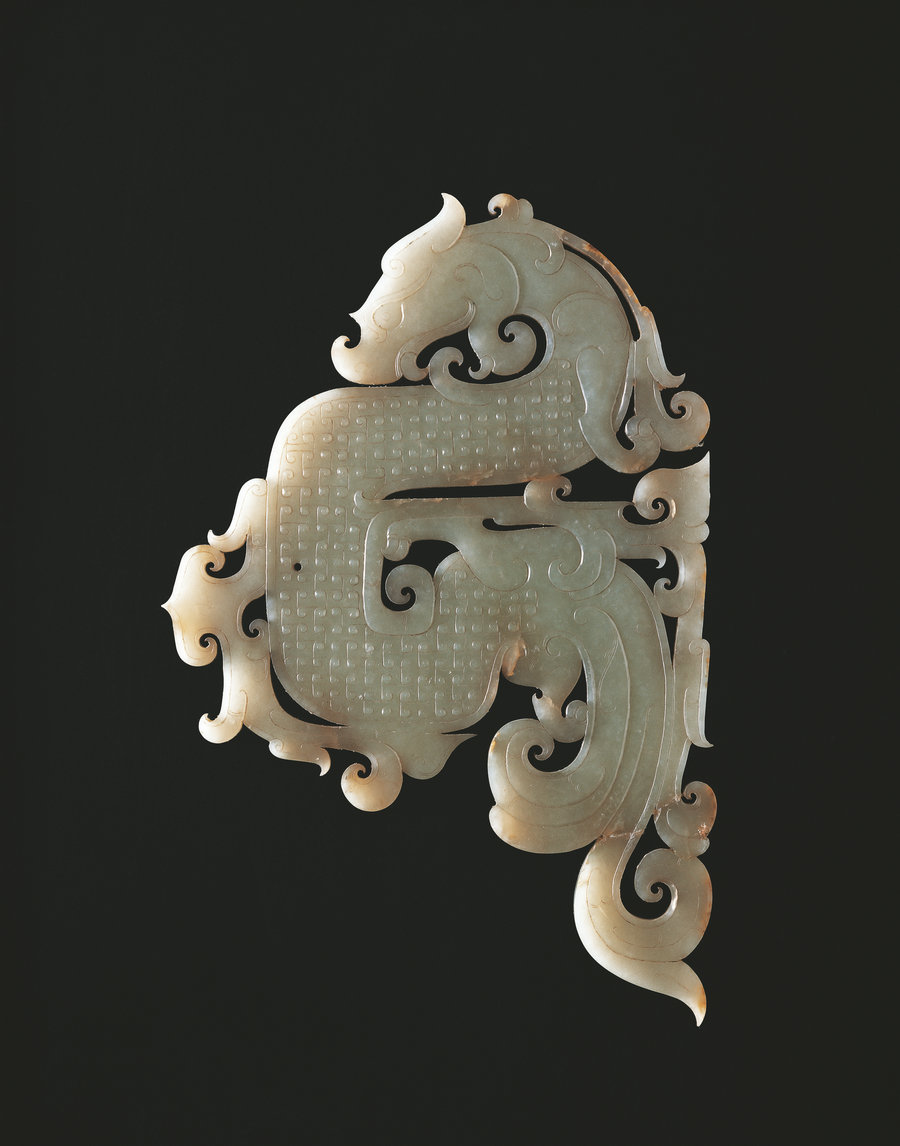

This chemical structure gives jade a sturdiness second only to that of black diamonds. While four to five metric tons per square centimeter is enough pressure to break iron and steel, seven tons per sq cm is needed to break nephrite jade.
Unbreakability was one of the five virtues assigned to jade — benevolence was another — by Xu Shen, an erudite man who lived between the first and second centuries, a devotee of Confucianism who compiled what is today considered the world's first dictionary.
Xu must have seen in Confucius the same quality. Despite repeatedly being cold-shouldered by those in power, whom he had tried unsuccessfully to talk into implementing his ideas, the man was unwavering, committed to his thoughts until the end of his life.
"Confucius is today often cited when people talk about the virtues that jade embodies," Zuo says. "In fact, it was the shifting social landscape of the Eastern Zhou period that allowed these ideas to really take hold with a section of society."
That section was known as shi, meaning the class of gentry scholars or literati, of which Confucius himself was a member. Among other things, the formation of this class at the beginning of Eastern Zhou and its subsequent rise was facilitated, or even necessitated, by the volatile political situation of the time.